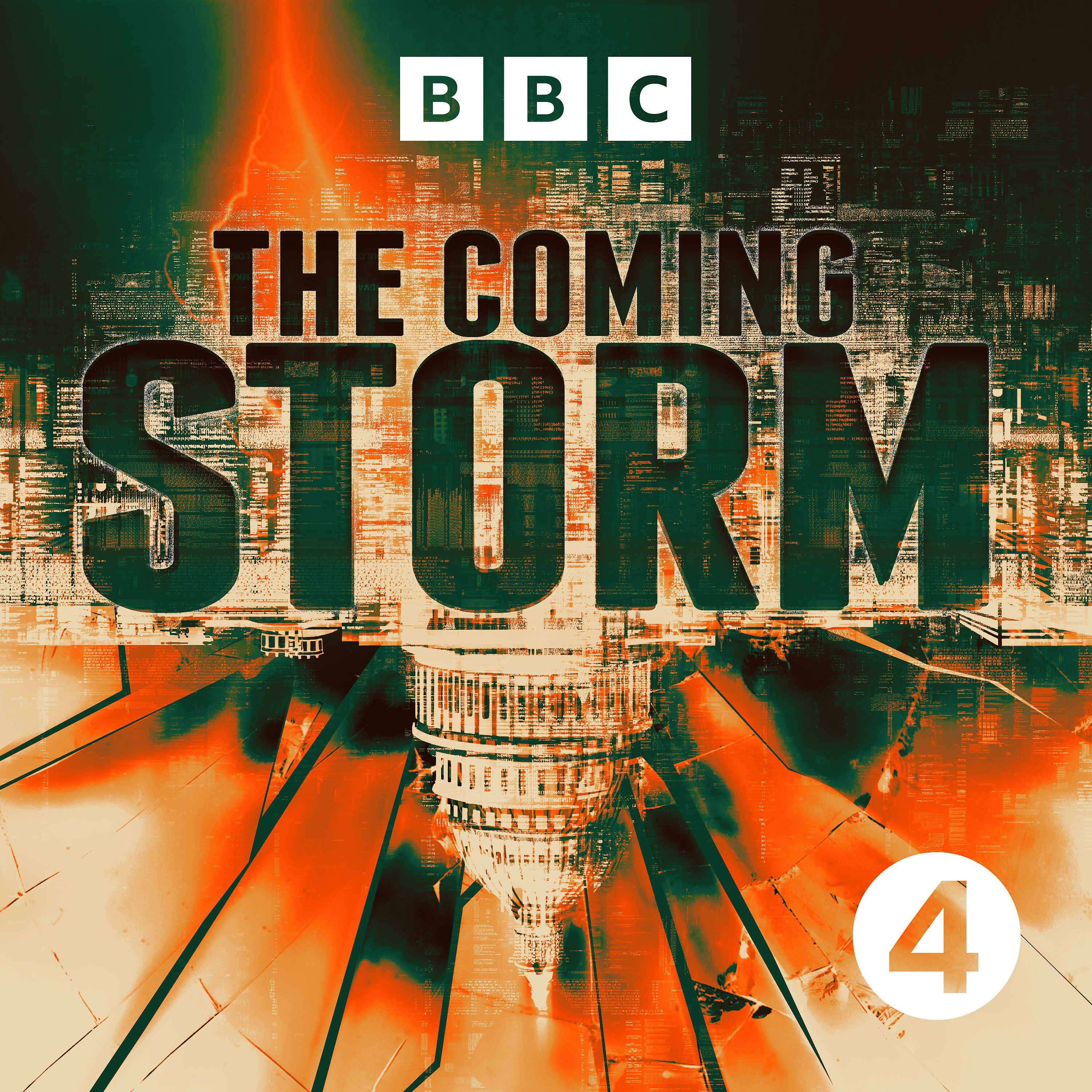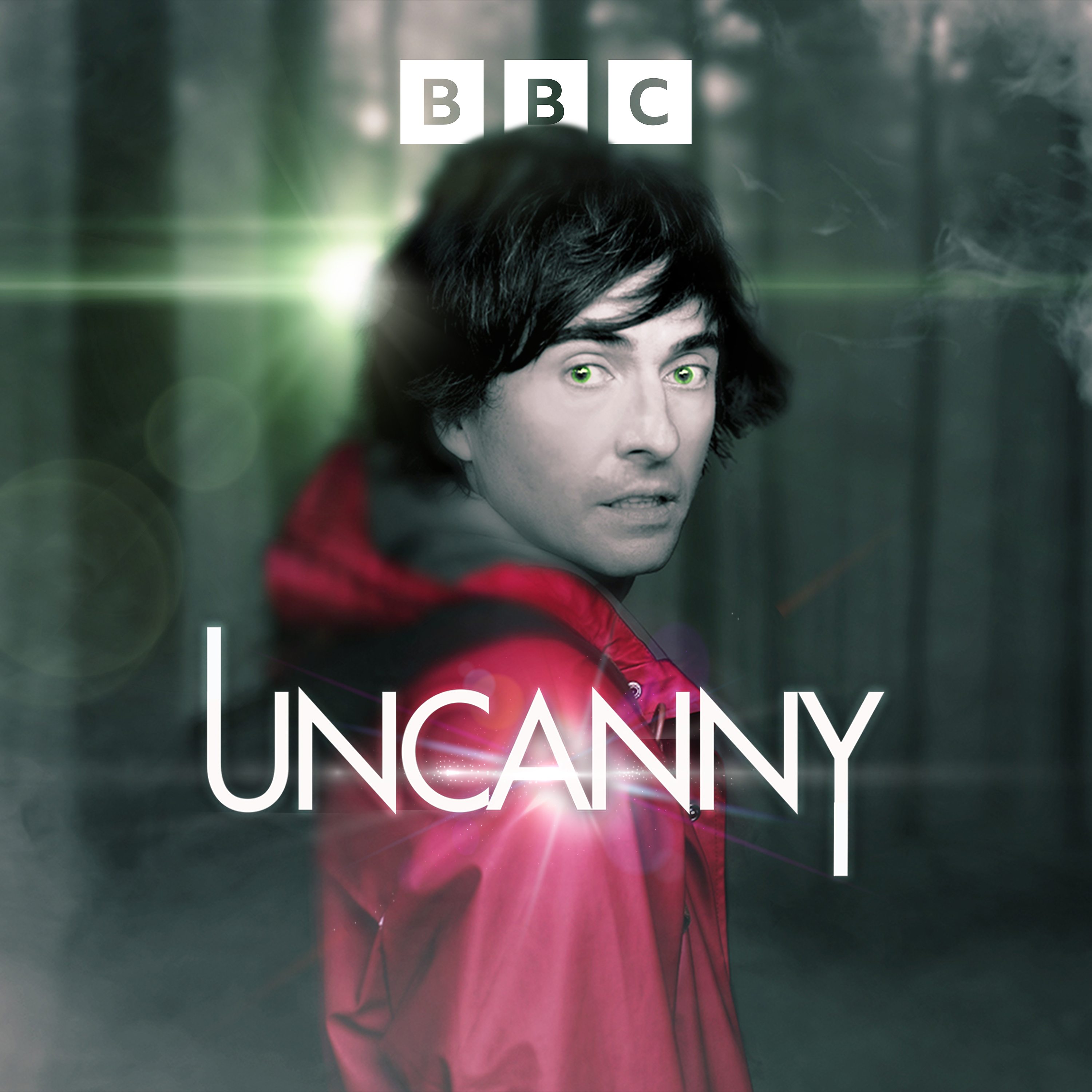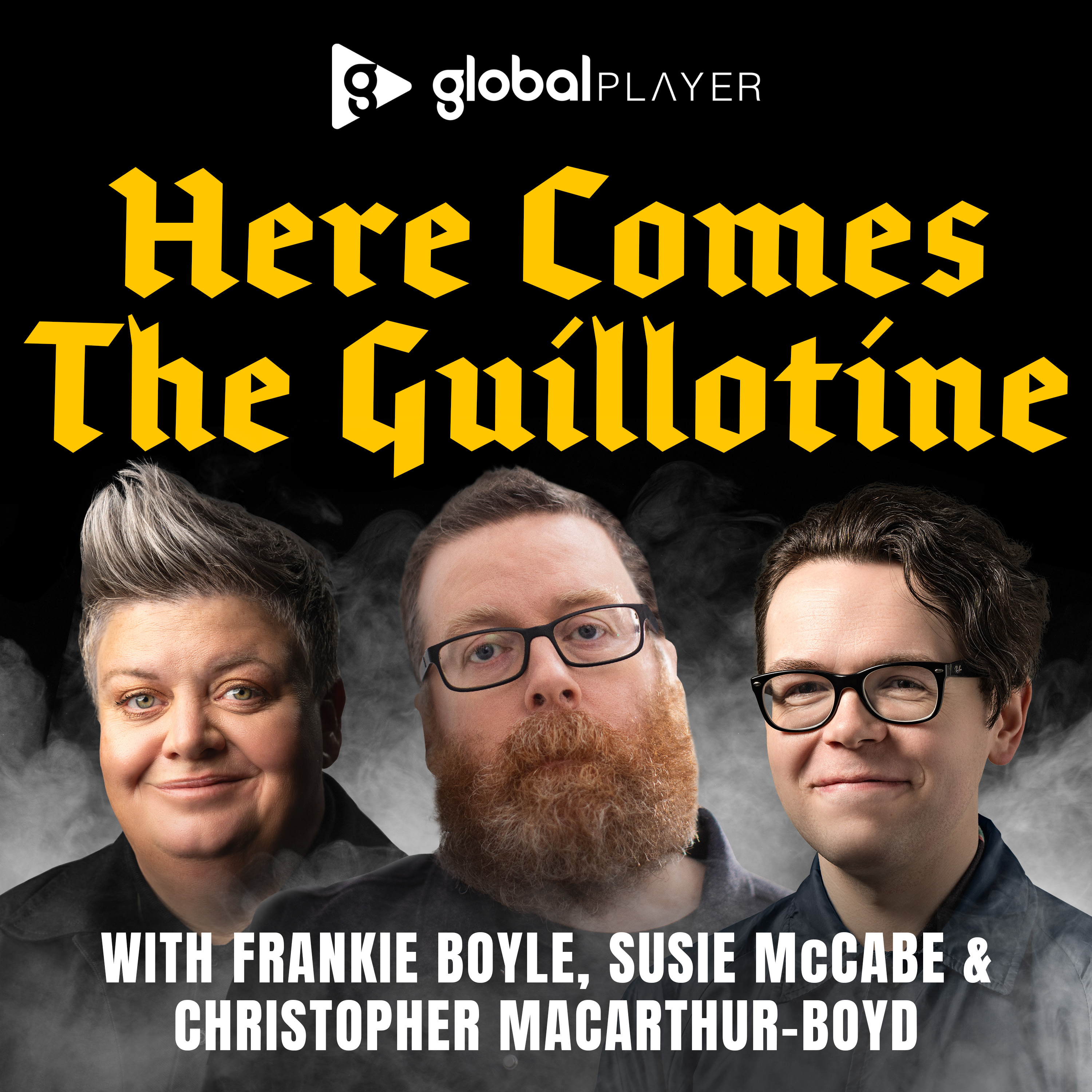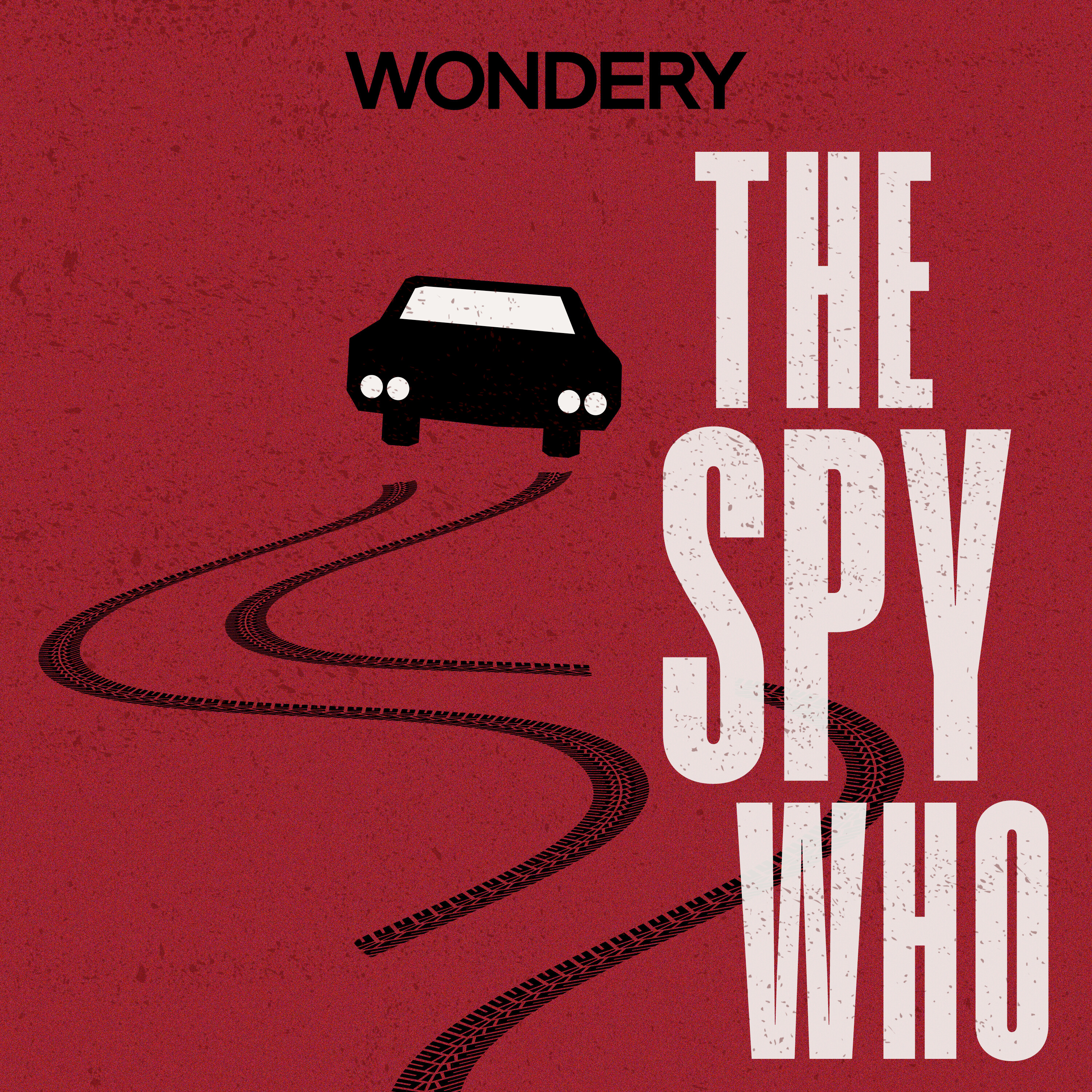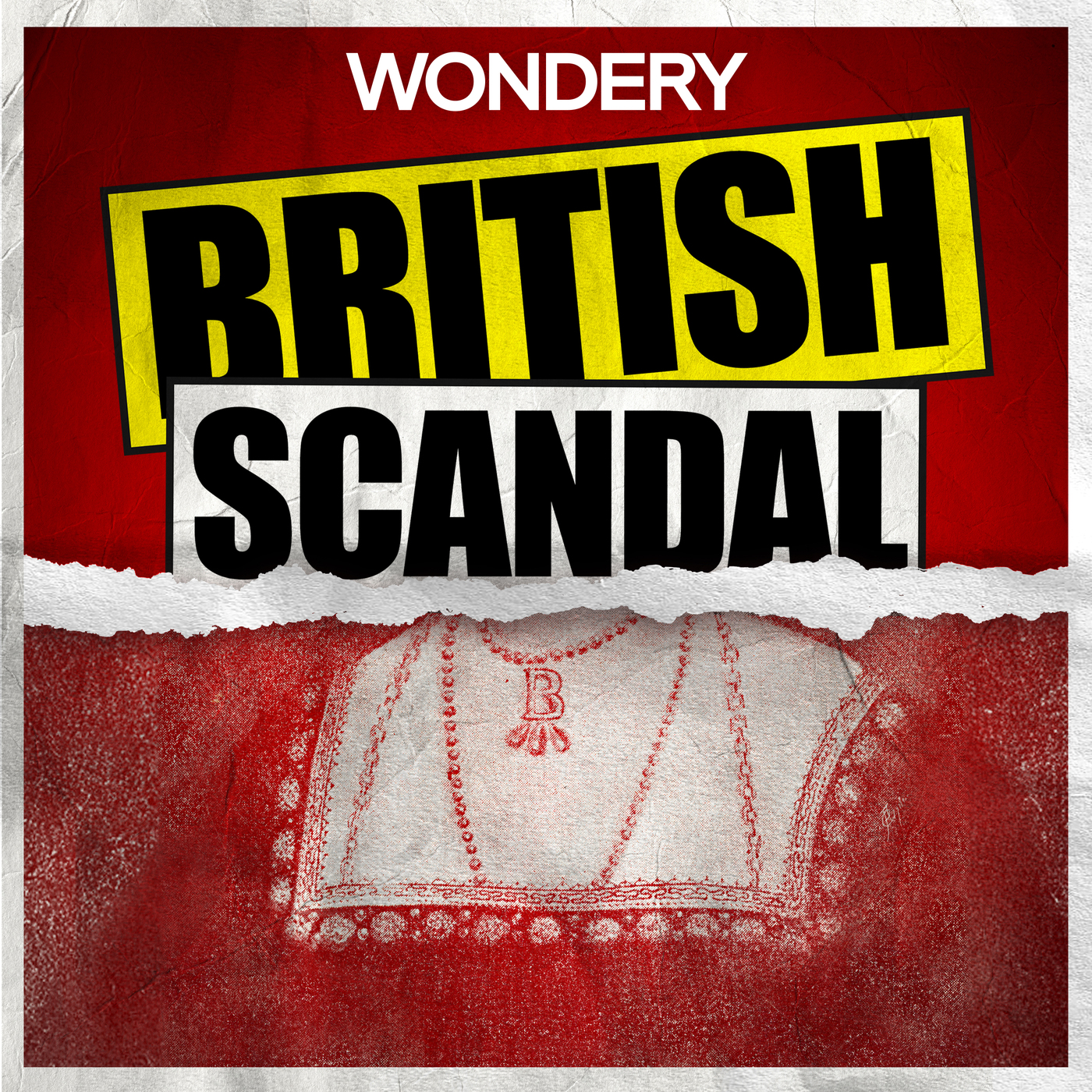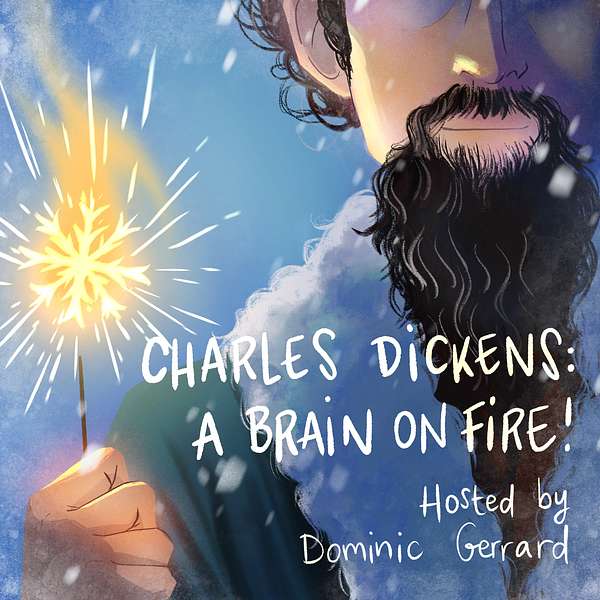
Charles Dickens: A Brain on Fire! 🔥
Guests include: Stephen Fry, Miriam Margolyes, Armando Iannucci, Alice Loxton, Robert Douglas-Fairhurst, Lucinda Hawksley, John Mullan, Pen Vogler, Andrew Davies, Rosie Holt, Bernard Cornwell .... and many more academics, writers, actors, directors and descendants of the great man himself!
Along side these interviews there are special Dickens readings from across his works ...
Thank you for listening 🔥
Charles Dickens: A Brain on Fire! 🔥
Christmas Carols: with Harry Christophers & The Sixteen
Dominic is joined by the inimitable Harry Christophers CBE , founder and conductor of The Sixteen, one of the worlds most revered choral ensembles. With thanks to CORO for these stunning Christmas excerpts:
Carol of the Bells Apple / Spotify Pilgrim Jesus Apple / Spotify
Of a Rose Apple / Spotify This Have I Done ... Apple / Spotify
Lo, How a Rose e'er Blooming Apple / Spotify
O Radix Jesse Apple / Spotify Past Three a Clock Apple / Spotify
For unto us ... Apple / Spotify Amen ... Apple / Spotify
God Rest Ye Merry Gentlemen Apple / Spotify
Wassail Song Apple / Spotify Good King Wenceslas Apple
This Little Babe Apple /
If you'd like to make a donation to support the costs of producing this series you can buy 'coffees' right here https://www.buymeacoffee.com/dominicgerrard
Thank you so much!
Host: Dominic Gerrard
Series Artwork: Léna Gibert
Original Music: Dominic Gerrard
Thank you for listening!
Hi everyone, happy Christmas. Today's guest is the inimitable Harry Christopher's, founder and conductor of one of the world's greatest choirs, the Sixteen. For over 40 years, harry and his award-winning ensemble have performed throughout Europe, asia, australasia and the Americas. Each singer that joins the ranks of the choir and each instrumentalist the period orchestra is a highly sought-after soloist and session musician in their own right, but they also remain a part of this amazing ensemble. The sound of the Sixteen is truly unique and overwhelmingly powerful, as you will soon hear. Who better than Harry, then, to take us on a thrilling journey now through Christmas carols, both ancient and modern, many of which surfaced during that revival of the 19th century, and many that were written this decade but still form a part of a continuum that echoes down the centuries both before and after Dickens' time. And, of course, the carols sung at Scrooge's keyhole is featured here too. For 13 years, harry was also an artistic director of the Handel and Haydn Society, which leads us neatly back to Dickens again, since Handel is clearly the most mentioned of all the composers in Dickens' novels. In fact, when I spoke to Harry, he had just conducted his annual performance of the Messiah at London St Martin in the Fields Church and as this piece is today synonymous with Christmas, he guides us through the stunning architecture of Handel's writing. Also, and before we begin, I also wanted to let you know that there are Apple and Spotify links to every piece of music you are about to hear, many of which are taken from the 16's most recent Christmas album, the Carol of the Bells. My thanks in advance also to the Choro label for granting me permission to use these excerpts.
Dominic Gerrard:It's time to meet Harry. Hi there, donnie. Good morning, harry. How are things Not too bad? Thank you very much. I'm so thrilled because I've been wanting to do an episode on actual Christmas carols for such a long time, and you're the perfect man for the job, because Christmas carols have been in your life for an extraordinary long time, haven't they they have? Where do they start for you? Where do they come from? Where in your life did they capture you?
Harry Christophers:Oh gosh. Well, I was born in a pub. This is always the interesting thing for people who are Christmas guys. I was born in a pub on the boxing day, so I wrecked Christmas for my parents, but my dad, I think. Well, actually, having said that, I didn't wreck it with my dad, I think he was enjoying a few points for local farmers in the pub.
Harry Christophers:We lived in the middle of Kent and a little village called Gouturt and the peacock inn was where I was born. My dad was the landlord and what I remember I mean we left home when I was about eight, but I do remember singing carols with my mum playing the piano with the local farmers, so it was literally just all the traditional ones. But it wasn't until I went. You know, I was very lucky to be a chorist at Canterbury Cathedral, where you had to move to Canterbury when my dad had to give up the pub and then, honestly, I mean I'd never been in the cathedral. I don't think I've been really in any churches really much, but to be in Canterbury Cathedral, particularly at Christmas time, that was special.
Dominic Gerrard:And so, with your mother, the traditional carols. What would you be singing from? Would? You be singing from Leachy to, or choral scores, or what was it. You know, I have no idea.
Harry Christophers:I suppose we just learned. It was a sort of usual, sort of six or eight carols and we just sort of learned them. But there's a lyric, because I once asked my mum my mum was being I would have been about six, I suppose five or six she asked me what I wanted for tea and I said can I have some dread? And my mother looked at me and can total disbelief, what the heck's this kid talking about? And she said, well, what do you mean? And I said, well, can I have some what the angels had? And then she's sort of doing Christmas. The mighty dread she was watching, et cetera, the mighty dread, so that was it. So. So, yeah, they sort of stuck in, but yeah, I don't know.
Harry Christophers:I think the one thing about carols is that you know, we all know about half a dozen there, all the usual ones that come with his faithful heart, the whole danger of seeing once in royal, while Sheppard's watched. I probably said them all day Good King, wentzersplatz, you know. And then you know bit by bit, we're sort of dribbled one or two others, and I think you know Carol services, for instance, a can spray. They didn't contain. You know all the usuals, but I do remember I mean wonderful thing was, as a chorus was going down, you know we'd be in our cast sets, we had lanterns.
Harry Christophers:We used to go down to the local car, the country car park, which used to be just off St Margaret Street where the Marlard Theatre used to be. It was a big car park and it was the Sally Army Band there and we would sing along with them and all the locals in Canterbury were there and I remember one year it was snowing. So you know it was just idyllic. It was just that sort of thing of you see on film, you know good Christmas films, that was it.
Dominic Gerrard:This is so interesting, harry, just to hear your background immediately having the carols in the pub and at Canterbury Cathedral, because what I love about Christmas carols are the wildness, the frostiness, the harshness. You know, a bit like a piece of holly you could you can still cut yourself on, obviously on on a thorn that there's a darker underbelly to some of them and they're haunting and they seem to encapsulate so much even the most traditional ones with the most traditional arrangements your recent work with your choir, the 16, the carol of the bells there are breathtaking carols on that. Would you tell us a little bit about that and what led you to put that one together?
Harry Christophers:Yes, I mean it's interesting with carols because you know the the origin of a carol is around dance, that's what it meant. And you go way back to to medieval times and the way that was done. And I think you know today there are a lot of composers that tarp back to those sort of more medieval times. They like the text and, as you just said, you know that carols aren't all just about joy and happiness. Passion carols talk about the whole Christian year. In verse one and two they bring in the nativity, but then it goes to passion tide and you get the whole cycle of the Christian year.
Dominic Gerrard:I have a few favorites from your carol of the bells, obviously, the carol of the bells itself, which is a fantastic, quite a wild Ukrainian melody, isn't it?
Harry Christophers:So Ukrainian one, I mean. Famous for what is it? Home Alone? I think it's, it's, it's. It appears in Home.
Dominic Gerrard:Alone.
Harry Christophers:That's where I first heard it, yeah it's incredibly catchy, but that's your secular Christmas oh come on bells, sweets, and the bells all seem to sing.
Speaker 4:Throw kiss away, please.
Harry Christophers:What I've tried to do on this particular CD was have a blend of the modern with some traditional ones. And I've really stressed the traditional cows because, as I said before, you know we know half a dozen that have churned out every single year. But years ago, peter Warlock, ray Form, williams, martin Shaw, they went up and down the country collating carols from all over, all over the United Kingdom and it's fascinating, you know, delving into those. There's some wonderful tunes. We just don't hear some of those today. And I'm gradually over the various Christmas CDs the 16 of produced. I've tried to introduce some.
Harry Christophers:So you know, we have a Song's Day Carol on this, this album, which which is it's not, you know, song's Day Carol. You think, oh okay, this must be French, but no, it's a Cornish Carol. But there are some fabulous modern carols. I mean a lot of that is down to Kings, cambridge and the lessons and Carol service, because each year a new Carol is commissioned by them, and so you know, over the years that's built up into quite a lot of pieces and I, you know, I get a lot of Christmas music sent through from various publishers and I sift it through and I see what is going to work in a program, what's going to work text wise, I have to confess there's a lot of what I would call substandard music out there, but there's a lot of really good stuff and you know the famous composers, obviously, like Herbert Howells, william Walton, days of Yor Richard, rodney Bennett, who wrote Fantastic Carols, and in the modern day we got the likes of Bob Schillcott, cecilia McDowell, John Russell.
Dominic Gerrard:Yeah, they're mind blowing. They're sort of earth shattering, aren't they? They're so moving and powerful I find them quite overwhelming to listen to.
Speaker 4:Jesus, jesus, jesus, jesus Jesus.
Dominic Gerrard:Something you mentioned also that's very interesting is about the ancient and the modern, and oddly, I don't know what you think about this, but sometimes say, a carol that was harmonized by the great Stena can sound more recent than something composed two years ago because of the harmony or the feel or the fire in it. There's something more medieval or ancient about something like Cecilia McDowell's Of a Rose, for example.
Harry Christophers:Yes, no, you're right, Understand what composers did, who you know, something like William Walton, for instance, and Richard Goddard Bennett, who heart back a lot through sort of medieval times. They put their own take on what is a what is an old text. Thinking of William Walton, make me join on this fest. Now, it's basically got the same idea as the old medieval carol and it's got the sort of medieval feel about it, this quite, very, very rhythmic idea. And of course those texts are really interesting because they're what are called macaroni texts. They're in English and Latin and there's something really special about it. And when you hear a modern composer do that take on it, it's still earthy but they've got a little modern twist. But what you've got with the traditional carols, with the likes of Ray Four Williams in particular I'm thinking of this, is the true scent from above. I mean, it's just beautiful. And they don't, those sort of composers, they never wreck the tune and that's what I.
Harry Christophers:You know I have a bit of an aversion to big arrangements, complex arrangements which sort of get in the way of the tune. I know why they're done and you know they've sort of popularized the carol, but actually there's something even more popular when you just sing it as it originally was, and we do a lot. I mean, we was put in our Christmas concert. We always put a couple of two or three carols in. This year I've got C's C Amid the Winter Snow, and I just have the verse sung in unison by the men or all the ladies, and the chorus is harmonized and audiences absolutely love it.
Harry Christophers:All these carols tell a story. I think that's what I'm getting at, nick, that all these carols tell a story and if you start putting too much into the music and a bigger arrangement you're destroying that story. We're not really hearing the text come through and that's why I find it so beautiful to do a traditional carol. And on the carol, the bells, we've got various ones. We've got Waseil's song, we've got Herrick's carol, we've got Sansay carol. You know these have gone out of regular use and they shouldn't. They should be back in and actually I think they are coming back in, which is great.
Dominic Gerrard:Yes, on the carol of the bells album, which I also love, is one of my all-time favorites, which is this have I done for my true love, gustav Holst, not the tomorrow's who me? Not that, and I just think that's astonishingly good, isn't it that one? And the melody for it start. I assumed it was a traditional folk melody, it's not. He composed it. So the idea that carols inspire these great composers as well and they absorb the folk tradition and take that on.
Harry Christophers:Yes, oh, you're dead right. I mean that is a fantastic setting. I mean that it's always difficult when I'm programming Christmas music. It's actually fine something that's longer than three minutes, and the Holst is, and that's great. And actually just coming back to what I was saying before about passion carols, of course the Holst is exactly that. This have I done for my true love. But it takes us through the passion story as well. It's not just about Christmas and it's just the fascinating way he just brings that whole story to life. The church Christian year of five minutes.
Dominic Gerrard:It's amazing, isn't it? But it could also. Obviously there are many standards to that one, aren't?
Dominic Gerrard:there and he's able to to meld the tune and adapt it and go through all these twists and turns to tell the entire story. But there's something else that I don't know if you've ever experienced this with any of the choral works, but with this specific one, when I first heard it I thought there were more than four parts to it and I was astonished to see the score and think, oh, it's actually four part again, that's something that a lot of modern opposed.
Harry Christophers:It's been a sort of trend, you know, for a lot of sort of what I call homophonic music, when everybody is singing at the exact same time. I mean fantastic music. I mean I can think of which, because looks a room where it's absolutely beautiful Morton, now it's an online in the stone it's. They are fabulous pieces. I'm not saying that, but they are very cordial and the atmosphere that's created is is just fantastic. But when you get a composer that's actually like holds is interested in in counterpoint and you know voices not singing at the exact the same time and a lot of textual variety, a lot of dynamic variety, and that's that's brilliant and I just love it may I mention also from this album, jan Sandstrom's low, how a rose air blooming now.
Dominic Gerrard:This is very interesting, isn't it? Because obviously it's combining a very ancient carol in a more modern setting. You might even describe it as ambient music. Almost this, this setting.
Harry Christophers:I think you've got it at exactly correct and ambient setting. That's perfect description of it. So, dominic, because it is it's taking for tourists is fantastically incredibly well known tune, known all over the continent, and Sandstrom just had these. Palm is underneath. That's set. A wonderful atmosphere is so quiet. Very difficult for us to perform the exact. To do it real justice, you did about 30 odd singers to actually sustain those wonderful chords beautifully. I mean my singers, you know they do it and they say they do what they call stagger, the breathing. So one singer, you know, breeds a slightly different part of another singer but remain managed to keep that sort of seamless sounds to it without any, any tricks of recording. So that's, it's great and again, audience is absolutely love it because they are, they're taken into a different sound world. You know, at first quite a modern sound, but then suddenly you've got the 16th century sounds over the top yes, it's.
Dominic Gerrard:It's very moving, isn't? And what's it like for you, emotionally, working on this material, sometimes when you're rehearsing it and conducting in front of an audience, when it's a supercharged atmosphere and you can feel everything change around you?
Harry Christophers:always it's brilliant. I mean, some of them are relatively easy, most of them we have to keep. I have to keep on saying to the choir look, you're telling a story, you've got it, you've got to communicate that story. And it's very easy for singers to get wound up in a sound world of their own and make a fantastic sound and think that's it. And I think one of the strengths of the 16th is that when we perform on CD or in concert in a Christmas concert, that we are communicating with the audience, we're telling that story and if that story haven't been Latin, we've got to. We've got to work harder to tell that story. By the way, we're inflecting the music.
Harry Christophers:I mean, one of the things I really love on this, this particular CD of Bob Chilcotts and Adnanjipans and Bob is Bob's, an old friend of mine, you know we used to sing together at Westman Strabby and in the BBC singers and then of course he spent quite a few years in the King's Singers and in sort of and sort of about called the second heyday of the King's Singers who have the original lot, then one or two of those left and it became very much to me, it very much became the Bob Chilcotts days of Bob won't mind me saying it, he was one of the best crewers out there and now as a composer he's fantastic and what he does a he writes so well for singers all my singers love singing his music and but he really does communicate with the audience. They create something very special. And this particular CD opens with a sort of seven, eight Pilgrim Jesus, which is very abominant. It's. It's great. Then his adnanjipans, which are spectacular, and you know the O Antiphons. They were their advent season, they they would. I think what happens detergically, I think an O Antiphon precedes the Magnificat, I think in the service of Ethan Song, and that will be done in all the cathedrals and big churches up and down the country. A plain song, o Antiphon. But Bob wrote his own settings of his based around the plain song. You know idea. But he's created something really special.
Harry Christophers:I mean I can't remember how many parts he goes. He goes into eight parts and sometimes I think it goes into more than that. And he has what I call them. There's one or two minutes which which he has what they call cells. So each singer is singing that cell, but they're singing it at a different time from their neighbor. So you might have say six sopranos on one cell, but they're all singing it at different times and at different speeds and at different moods, but they it creates a incredible atmosphere and there's a technique being used by many composers, sort of over the last 20, 30 years, but Bob really makes it work obviously you were a chorister as well, harry.
Dominic Gerrard:Do you think that's massively informed the way you conduct the choir? Because I always, when watching conductors myself, I'm always curious to know how much they have to work their musicians and how much they have to give the musicians space and how much of it is almost telepathic what's passing between you well, I'm talking about the 16.
Harry Christophers:That's the thing I mean. It's a very, very just brilliant and we feed off each other and that's always been. No, I will come with my, you know, with all these pieces. Doesn't matter if it's just a trad carol or a Latin setting of a pantheon or a modern piece. You know, I'll come with my own interpretation of that, you know, and if something doesn't work, we'll change it. But the thing about when we are performing the music is that the choir know that they need to keep their eyes up all the time because I'll do something different. He's time to keep the music alive. You know when we're doing. I think we've got something like six or eight programs of performances of the Christmas program this year. So you know, to keep it fresh, you know, I will do slightly different things and they're super performers, and so it and communication is is what we are all about, and as soon as that becomes in concert it ever becomes routine then I'll try and click it into place and just make sure you keep just it.
Dominic Gerrard:All it takes is an eye, someone and and everybody's is back in the, in the zone and communicating yes, I suppose, because there is the danger possibly, if you're doing heart for herald with Mendelssohn's harmonizations, it's just slip into autopilot, possibly with the best intention in the world, and it's that thing of, I suppose, bringing it back and making it, coining it as a new thing in that moment. That's never been sung before yeah, exactly that.
Harry Christophers:And and before you know, when we put a traditional carol in and I remember last year's Christmas program had passed through a clock, but it's got something like six, maybe now eight verses and many verses, and you've got to keep it interesting and it's had a different life than what you would hear in a cathedral choir of it. We tend to sort of milk, milk the words and make them really come alive there's something pleasing about past three o'clock, just the fact that it's telling the time.
Dominic Gerrard:Yes, I know something, just I can't explain it, but it's something very appealing about that listening to go oh right, yes, this is here we are.
Harry Christophers:It's a frosty day, we're outside and we can see the clock tower and yes, yeah, and it just starts that simply past three o'clock, yes, then you are very off again and that and that that is actually, I do remind me, really require last year with it. But they had so much fun in it because there was always a twinkle in their eye and and there has to be that joy has always got to be there because you know the audience, our audience, is becoming very often, you know, for them it's, you know, be often here. Oh, my goodness, be the 16 Christmas concert. That's the start of Christmas for us. Brilliant, that's lovely, in the same way that when people come to our Messiah or something.
Dominic Gerrard:But you know, and then you know, with the side, you've got the biggest liturgical work ever yes, I was going to ask you about the Messiah Harry because one I think you performed it this week at St Martin's in the distance, didn't you but I? Also, I think, of all the composers, it's the one that Dickens mentions more than any other.
Harry Christophers:Handle crops up in his novels all over the place, but and the thing is with the side, of course, today it's, it's in people's minds, it's anonymous with Christmas, but we have to remember that it was first performed in Easter and that it is a piece that encompasses the Christian year. But, as I say, particularly in the UK and in America especially, it's absolutely synonymous with Christmas and America Thanksgiving. And you find in every, every major city in America the tours being sized, being done by the, simply orchestras in those places. I've recorded it now twice. I'd record it way back in 1985 when I very first started the orchestra. In fact it was absolutely bizarre.
Harry Christophers:The wonderful company called Hyperion, with everybody knows and the founder that was a fantastic guy called Ted Perry, and I phoned Ted up and said lots. I said I really want to record Messiah and he said well, he said we've got an orchestra. I said no and I said but I will, I'll have one and I'm gonna form a period orchestra, right, and I said I really want to record it. He said have you ever performed it before? I said well, yes, but I've not, not, not as much, not as me. I've signed in the size I've been. I've sort of realized the choir for them, brother, people, and they've done on myself and it was sort of science, he said. And then he said, yes, I'll record it. Well, she said so he's recording somebody who's never performed this side of the knife before and has got never and hasn't got his own orchestra. So that was 1985 and it was a really pared down the side. It was there's only 16 singers, it was strings, I'm not sure. I didn't had any oboes. In fact it wasn't a replica, replica of the Dublin performance where there weren't any oboes, but it was pretty scaled down and it was a. It was a massive success. I can't listen to it today because it's so, it's so, it's so different from my approach today and back in, I can't be 20, 10. I think. I re-recorded it on Choro with soloists who had come through the ranks of the 16 and then ended up being stars. You know Carolyn Sampson, mark Padmore, chris Burris, you know they'd all been in the group for the best part of 10 years and now they're really so it's. That was wonderful to bringing that back, and the outer setters was Catherine Win Rogers, who had sung it so many times for me anyway, and you know it is an incredible piece of which, as you mentioned before, we did it at the Martin Luther Fields on Tuesday with two what I would call younger soloists, but brilliant, and two more established soloists. So I've known for years but as a quartet they were just staggering. They were all you know.
Harry Christophers:What makes Massar special in concert is when you have more solos that are A text-led but they're also stage animals and they really they communicate with the audience. And our Massar is one of. I think I've sat through so many performances of Massar in a scene once on television and recordings, where you know you do a chorus and then they turn the page and then you start the aria with a wretted and there's no sort of sense of direction or trajectory through the piece and no drama. And it's the sort of simple thing with Massar is that on the front page of his when he handled first, wrote it and there were reasons why he did this. But it is caused by entertainment and in my mind that's what it is. It is also a sacred oratoria. Of course it is. But if we don't treat it as a drama I'm sort of saying I'm using entertainment as a sense of drama opera then I don't think we get the best out of it.
Harry Christophers:And for me the beauty of having a different soloist each time I do it is that each of those soloists bring something special. They bring their own interpretation which we can then in rehearsal, mold. And then you know, if there's because with Massar I take an aria like, rejoice greatly in the Sopano aria. Some Sopanas like it really, they like to do their color to a really fast, some need to take it steadier. Tempos vary, so that has to. I have to take that into account to how I relate the movements around it. So I don't just have an idea that I'm doing, or I just sort of I just ball it a strict tempo and I do it the same every single time. I don't, I sort of I mold it and I have a vision of how I'm gonna get from the overture to the two worthy of the Lamb and the Lamb and, of course, the very end. So I'm taking the audience on a journey and I think that's I sort of. Somebody asked me the other day I should write a book on my interpretation of Massar and there's somebody actually asking me the questions and I don't really know. I mean, I'm there at the moment and it happens. And what was lovely the other day I had all my six regular suppliers and my good is me, it told they were just amazing.
Harry Christophers:A chorus like four unto us, a child is born, you know he writes it. Four unto us, a child is born. So it's sort of the underlay is a bit odd, you know, and people sort of criticize handle, for you know, always a German trying to write in English, but actually just make it work. Chorest the effort for four unto us. So you're using the introduction four unto us as a kind of a cup at least, which is just just gathering everybody's attention.
Speaker 4:Four unto us. A child is born. Unto us, the sun is given. Unto us, the sun is given. Four unto us, a child is born.
Harry Christophers:And then when you get to all the parts that then go unto us, a child is born unto us, a sun is given. So with the word, you've got those rest. Then make the siblings sort of carry over. The rest unto us, a sun is given. So it's. It's the sense the words is going forward, that you're never chopping it up. The rest is there but you're not chopping the music up. I don't, I don't, I don't, I don't.
Dominic Gerrard:That does make sense because I think that's a running theme with all of your work, harry, is you understand dramatic tension and where there is a sense of sometimes pushing against the grain of something and make it like you said make it work.
Harry Christophers:Yeah, yes.
Dominic Gerrard:But I love that you mentioned worthy as the lamb and amen at the end because, as you were saying about Carol's earlier, about homophonic into polyphonic and that's a fantastic, stark example of the two types. If you want to, if listeners want to know something that's homophonic to something that's polyphonic.
Speaker 4:And the fact that that final chorus which is absolutely shattering at the end.
Dominic Gerrard:It's so beautiful, isn't it? And it's one word.
Harry Christophers:One word, the whole time.
Speaker 4:Amen, amen, amen, amen, amen, amen, amen, amen, amen, amen, amen Amen.
Harry Christophers:Amen, amen, amen, amen, amen, amen. You have to work at the amen chorus to really make it come alive in a very special way. I mean it will always be great, it will always be. I mean it doesn't matter what the form it says, even if it's with a harmonium or it's with piano, or you've got the luxury of an orchestra. But to make it even greater, you just look at the way Handel writes it and the way he starts it, with just the choir, each part coming in after each other, and then suddenly the strings take over, they have their say, and then you suddenly have everybody coming in together and it's a whole I talk a lot about in rock music. But it's demo-sroom and it's about architecture.
Harry Christophers:The praise goes upwards who had a small crescendo? And the praise comes down. You had a small diminuendum. So it needs that architecture being shaped all the time.
Harry Christophers:And by the time you get to the middle of the amen chorus, you've got phrases that are starting to going up. You have phrases starting higher up coming down. You have crotches that have slight daggers on them. You have minims pathnotes that should have expressions. So you've got how many things there? You've got one, two, three. You've got about five different elements that all need to be doing their thing. And actually, if you use that architecture, you would handle such a long chorus that you've peed the sound. You go to a certain length and then you bring it back, and then you go a little bit further. And then, of course, you realise this poem when the sopranos hit their tofe at the end and then it followed a few beats made it by the tenets hitting theirs. You know, you've really got something that's absolutely staggering, and every time we get to that point I get the shiver down my spine. I must have conducted the song well over 200 times.
Dominic Gerrard:It's always great. Yes, you are definitely qualified to write the book then, Harry. But, a carol that I wanted to run by you, harry. As mentioned in Dickens', a Christmas Cowl is God. Rest ye, merry gentlemen, and I just think that's of the traditionals. That's an absolutely stunning one.
Harry Christophers:It's very interesting, carol, because when we were mentioning earlier about the Oxford Book of Carols and the way that Paul Williams and Martin Shoron all of them, people like that went up and down the country seeking the tunes, there are two very distinct tunes to God rest, we only ever hear the one which is known as the London melody. There's another one I'm not sure where it comes from, but we never hear it today which is just to remind you that one day I must do it. God rest ye, merry gentlemen. It's a long carol. It's in the minor, it ends in the major, obviously, but it's very much got that minor. Feel about it. God rest ye, merry gentlemen. That nothing you dismay. Great text, isn't it?
Speaker 4:God rest ye. Merry gentlemen, let nothing you dismay, for Jesus Christ, the Savior, was born upon this day To save us all from Satan's power when we were gone astray. O tidings of comfort and joy, comfort and joy.
Harry Christophers:Remind me which it comes in Christmas carol, doesn't it?
Dominic Gerrard:It does.
Harry Christophers:yes, there's a carol singer that stoopes down at Scrooge's keyhole and sings through the keyhole and Scrooge throws a ruler at him. That's right.
Dominic Gerrard:But actually it is minor isn't it, but actually it's incredibly joyous as well and people really have that sort of energy and a pace or something about it.
Harry Christophers:It certainly does, and I'm just looking at it here eight verses long. I don't think these days people sing all eight verses. I think the usual thing is to sing about five or six of them and the rest of them are cut out. Yeah, because I'm just looking at the seventh verse here. Now. To the Lord, sing praises all you within the space, like we, through loving breath and each other to embrace, for the merry time of Christmas is drawing on a pace, and then it's tidings of comfort and joy, and it's that chorus which is just so brilliant Comfort and joy. I love that. Yes, it repeats it, and it's tidings of comfort and joy. Comfort and joy. It's tidings of comfort and joy. Comfort and joy. It's simple, it's memorable and, yeah, no wonder it's a big traditional favorite.
Dominic Gerrard:But also just you know, listening right across your Christmas albums, that melody that comes up in so many other patterns and forms in other carols, doesn't it? If you listen to the tune of this Waseil song, it's identical to God Resty Mary, gentlemen, except that it has a dotted rhythm rather than a straight rhythm.
Speaker 4:Here we come a war sailing among the leaves of green. Here we come, a wandering so fair to the sea.
Dominic Gerrard:One of the great thrills of my life was when I chose one year to set down my own arrangement of Good King Wenceslas and sent it to you and you recorded it with obviously 16 and.
Harry Christophers:Alexander, yes.
Speaker 4:Yes, yes.
Dominic Gerrard:And that was so amazing. I couldn't be there for the recording because I was doing a show. You were in school, you could, so I completely missed out on hearing it live. But what are your recollections of that?
Harry Christophers:That was great. I was sent to St Augustine's, kilburn. I remember it was very cold. Luckily everybody was in big Christmas jumpers and Alexander was just brilliant. He was so game for doing it. And what a great. I mean another great story as well.
Dominic Gerrard:That's a very big story, isn't it? It is, yeah, that's a very clear story, isn't it? Yes, yes.
Harry Christophers:And so you know that, and it's that sort of picture book Christmas, isn't it? It's deep and Christmas Eve and everything. It's also one where I have a real problem with the game, with overblown arrangements, and you know I'm not a big fan of the one in the very first Carousel of Choirs. Of course it has the men singing the Pace Stand by me and it has the ladies singing Sorry Lives, a Good Leakent, but oh, my goodness me, the harmonies underneath it that's going on. Honestly, I don't really. It made me cringe, yes, no.
Dominic Gerrard:I'm so relieved that my harmonies make the cut. Because I do agree with you, because I was trying to work in the Russian Troika melody that yes yes and put that into the harmony a little bit. It's quite concealed.
Harry Christophers:No, yours worked brilliantly.
Speaker 3:Ring me flesh and bring me wine, bring me pine-logs hither Thou, and I will see him tine when we bath and live.
Speaker 4:Hage and quarrel. Both they went, both they went together Through the ruins by the men, start to meet a well you know, talking about God rest your marriage, gentlemen.
Dominic Gerrard:Again as well, there's something that you choose to do, and this is something that fascinates me as well working on Shakespeare as well when to do this, when not to do this. So, if I take a line from God rest your marriage, gentlemen, the shepherds at those tidings, rejoice it much in mind, rejoice it for a start, rejoice it much in mind and left their flocks are feeding in tempest storms and wind.
Dominic Gerrard:What do you do? Do you say wind? Do you say wind? When is it right to do? How do you make these calls, Harry, when you're looking?
Harry Christophers:at it. Those sort of calls are communal call. I look at everybody and say, what are we going to do? I probably used to go wind because it's rhyming. It's very funny. We always do the music at the Oxford and Cambridge Cup for their traditional Christmas dinner. I think it's coming up on Monday and if God rest your marriage ever on, you'll get half of them and it'll be the more vocal ones going wind and they look around each other to take sort of yes, I got it right. I don't think otherwise. You just say it normally. Yeah, it's interesting, isn't it with cows?
Harry Christophers:Because another to me also like hymns do you punctuate everywhere? Do you go through ends of lines? Do you make the punctuation in the middle of a line of a stanza? Do you punctuate it there? I'm very one that sort of when we're performing these things, we try and make the punctuation natural. They're all inverse and very often go through at the end of a line where we've got the sense going through. We may not rake in the middle of a line because that is upsetting the tune, but we'll sort of what I call turn the corner. We'll make the punctuation, we make sense. Put it this way we make sense of the punctuation within the tune that we're singing, if that makes any sense.
Dominic Gerrard:Yeah, it can be a real challenge for a composer, I think as well, dealing with verse and deciding how much to honour the meter that's already in there and how much you can pull it around and stretch it. I think Benjamin Britten does one of the sonnets, maybe sonnet 19. And I'm not so keen on that one because I feel like it's kind of pulled around a little bit too much.
Dominic Gerrard:That's my own personal taste although I should give an honourable mention to his ceremony of carols, which are extraordinary, my favourite, this little babe that's my favourite.
Harry Christophers:Yeah, that's my favourite.
Dominic Gerrard:Is it your favourite?
Harry Christophers:Yes, it really is, but that stems way back again. Every child chorister will have it. Some will have performed Cemetery of Cows, because it's just brilliant. I remember it was a BBC broadcast as well. It was in the chapter house of Country Brick of Feudal and I remember Alan Wicks who was our choir master there. He just loved Britten's music but we made a pretty gutsy sound with Alan and there's a lot of low notes in Cemetery of Cows. He'd be always going dig those, dig those, dig out those, go on, go on, go on, go on.
Harry Christophers:And apparently the harpist she was a lady. Alan used to say she was very interested, she was very, very famous. It might have been, for instance, robus or something like that, I don't know, it could have been. No idea who it was. It's a very long time, I'm talking about the early 1960s.
Harry Christophers:But I recorded assembly cows with my lot, which is always heard, with boys obviously, but I've worked with the ladies and some of the male alters and funnily enough it is one of Britain's most joyful pieces, written at a time when he was in total despair. I mean it's just stagnant here. He was coming back from America to face the English public as a consciousness abjector. I suppose he could have been a lot of criticism of him and he was in the depths of despair. He bought a little anthology of medieval poems and on the way back he wrote Xemriot carols and wrote it for women's voices. And it's amazing, and this little babe, I mean, is just so clever because you've got the harp, you know the harp is, in a way, they sort of their fingers will be well bruised by the end of it because they're plucking away on this incest and gene, and it's exhilarating.
Dominic Gerrard:It's just incredible. Yeah, it really is. And Harry rehearsing that with the, the top lines echoing each other, chasing each other. How is that a bit of a tangler? Is that clearer and easier to do?
Harry Christophers:Yeah, no it's a great fun piece to do. I mean we love it. I mean, when we recorded it because I did use adult voices, ladies, and I think I had one or two male outers. In fact, if I'm not mistaken, I think there's a certain Dame, sarah Connolly, who's in the outer line on that disc and she was singing the choir. That's just great.
Harry Christophers:But what we did is we had a language coach trying to get some of the medieval renunciation across and actually produced some really interesting sounds.
Harry Christophers:I mean, the fascinating thing is, of course, as soon as you get a language coach on anything that's to do with medieval English, etc. It was fascinating because I remember her saying well, you know, it's really difficult because each of the poems that Britain chose have come from a different part of the country with a different dialect. I said, well, look, I go, we don't confuse us. It's just sort of let's sort of home in on on one sort of way of pronouncing it. It's actually going to work for the whole piece because, but it was fascinating. So you got younger, younger, younger, child, child and so and it really it lends itself and I think I think Britain would have, would have actually liked us doing that. You know one of his last work he ever wrote, which is Sacred of the Fae, and that's all medieval text as well, and there's a lot of his phonetics in that, and so he was obviously quite keen on trying to get a taste of some kind of ancient sound.
Dominic Gerrard:Harry, this has been such a thrill to talk to you. I had a very scholarly parting question to ask, which was, quite simply do you have a favourite Christmas Carol this year?
Harry Christophers:Oh, this year. Oh gosh, I mean I'm an absolute sucker for ding dong, merry-go-round high. I just love it, it's just so glorious. But you know, I'm a sucker for all of the cows and when I find one that I don't know and I've not come across, I remember the Glossoscial Waseil was an absolute find for me. It was brilliant. That one we can never do in performance because when we recorded it it's got about eight verses. Just bear with me a sec because I'm just going to look it up.
Harry Christophers:So this is another one out of my legendary Oxford Book of Carols. We're talking about growing up with carols. I just noticed this Oxford Book of Carols was bought for me by my mum when I was at Canterbury Choir School Wow, my name is Canterbury Choir School, Canterbury because it was 1966. She bought it for me at Christmas 1966. But the Glossoscial Waseil, it's got eight verses. So it's Waseil all over the town.
Harry Christophers:Our toast is as white as our ale if it's brown, but then it's got all these verses. And here is to Dobbin and to his right eye. Another one is. So here is to Broadmay, here is to Philip Pail and to her left ear. And we had such difficulty recording it Because as soon as the gents because again, I did it in a sort of just around carol, we don't just in sort of just with Cirque, cirque emotions starting with the gents then the ladies do a verse and then everybody joins together by the time we get to the end and whatever the ladies did the verse, they got the text absolutely perfect.
Harry Christophers:Whatever the men did the verse, there was somebody getting the wrong word and we were just weeping with laughter through this whole session. On the on the disc it's absolutely fine because all the words are in the right place. But I think you can, I think you can hear the jollity that's going on every time, and there's no way I could put that in a in a concert performance, because I don't think we'd even start it because the choir would be laughing straight away.
Dominic Gerrard:That's wonderful. I think that's the carol to end on then We'll play out our interview. Very thank you so much. It's a great pleasure to have you Lovely to chat and have a very merry Christmas Likewise.












